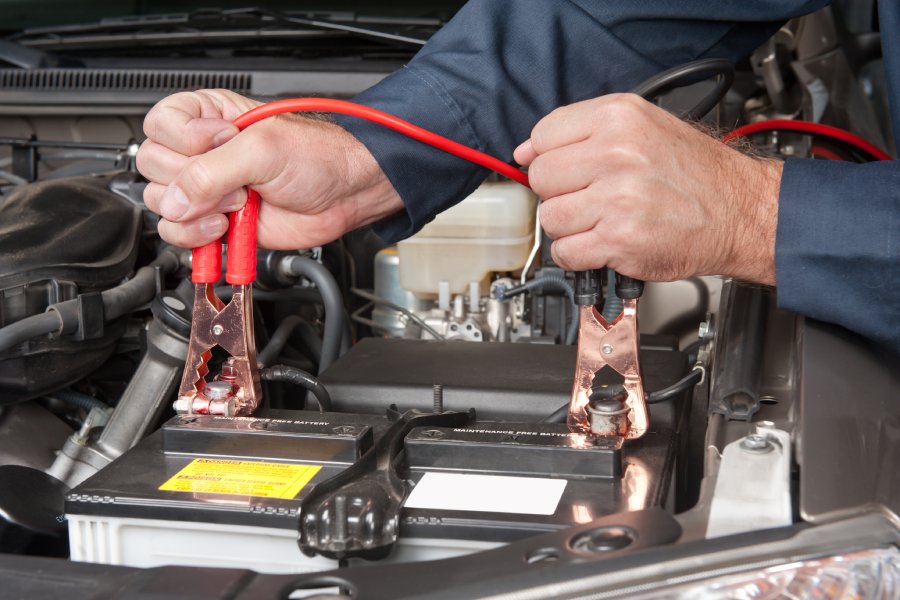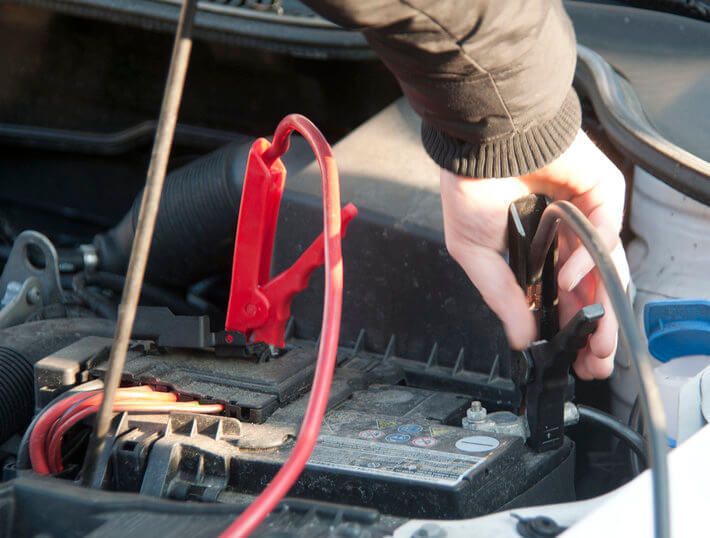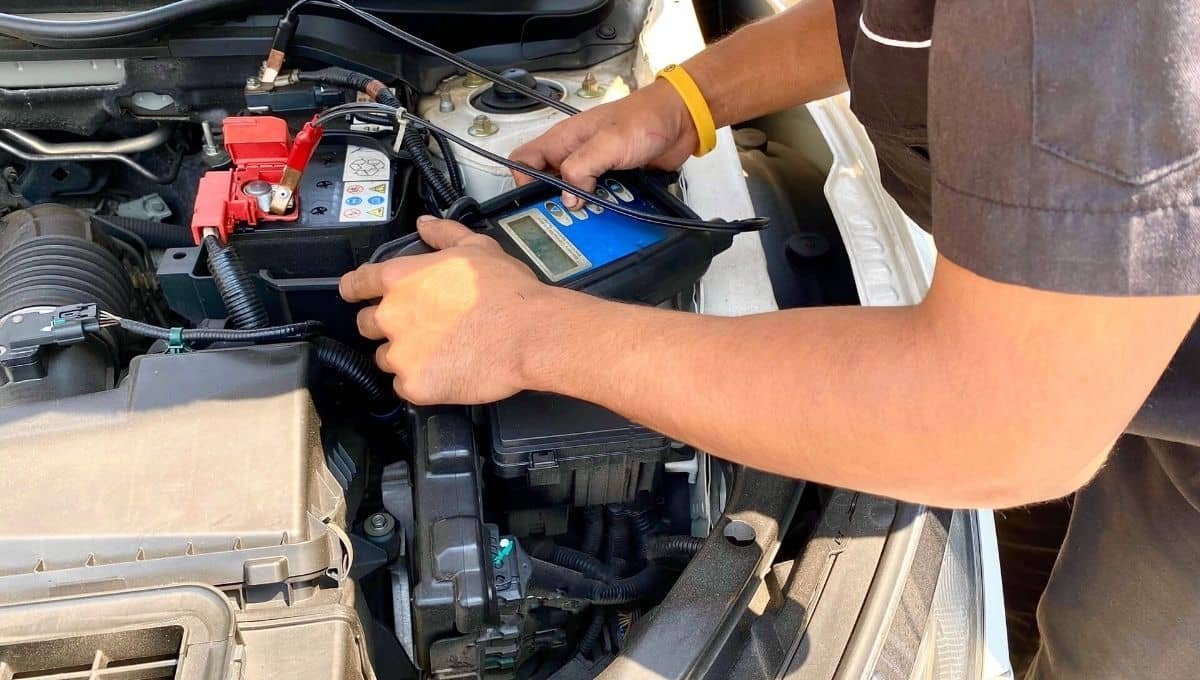Does Leaving Car Lights on Auto Drain Battery? Leaving car lights on auto does not drain the battery. Modern cars have sensors that turn lights off when not needed.
Car lights set to auto mode offer convenience and safety. These lights use sensors to detect light levels and automatically adjust. This feature ensures optimal visibility without manually switching lights on or off. Drivers benefit from improved safety, especially during dusk or dawn.
The system prevents battery drain by turning off lights when the car is off. This automatic feature helps to extend battery life. It also minimizes the risk of forgetting to turn off the lights. Auto lights enhance safety and convenience without negatively impacting the car battery.
Introduction To Car Light Settings
Understanding car light settings helps maintain your car’s battery life. Modern cars often come with various light settings. Using these correctly can save you from battery drain issues.
Importance Of Proper Light Settings
Proper light settings ensure safety and battery preservation. Incorrect usage can lead to battery drain. This can leave you stranded. Proper settings also help in clear visibility during night drives.
Common Car Light Modes
| Light Mode | Description |
|---|---|
| Auto | Automatically adjusts based on external light conditions. |
| Off | Turns off all lights. |
| Parking | Used for low-light parking situations. |
| Manual | User manually controls light settings. |
Using the Auto mode can be convenient. It adjusts the lights automatically. This mode reduces the risk of forgetting to turn off the lights. But, it can lead to battery drain if not managed properly.

Credit: reliable-auto.com
Auto Light Functionality
Does leaving car lights on auto drain battery? You can check the auto light. The auto-light functionality in modern cars adds convenience and safety. It ensures lights turn on and off automatically. But does this feature drain the car battery? Let’s explore how auto lights work and their benefits.
How Auto Lights Work
Auto lights use sensors to detect light levels. These sensors monitor the environment and adjust the car lights accordingly. When it gets dark, the sensors turn on the headlights. When it’s bright, they turn them off.
This system helps drivers focus on the road. It eliminates the need to manually switch lights. The sensors are usually located near the rearview mirror.
Auto lights also have a delay feature. This means lights stay on for a short time after parking. This helps you see when exiting the car at night.
Benefits Of Auto Lights
The benefits of auto lights are numerous. Here are some key advantages:
- Convenience: No need to remember switching lights on or off.
- Safety: Ensures visibility in changing light conditions.
- Battery Life: Modern systems manage power efficiently.
- Reduced Wear: Less manual use of light switches.
These benefits make driving safer and more enjoyable. Auto lights adjust to different driving conditions. They are especially useful during dawn, dusk, or in tunnels.
In summary, auto lights are a smart feature. It enhances the driving experience while protecting the battery. Keep your auto-light function activated for the best results.
Battery Drain Concerns
Leaving your car lights on auto can be a concern. Many people worry about their car battery draining. Let’s explore the factors that affect battery drain and signs to watch out for.
Factors Affecting Battery Drain
Many factors can impact your car battery’s health. Here are some key elements to consider:
- Age of the Battery: Older batteries drain faster.
- Car Usage: Short trips can prevent full battery recharge.
- Electrical Accessories: Using many gadgets drains the battery.
- Weather Conditions: Extreme temperatures affect battery life.
- Faulty Alternator: A bad alternator won’t charge the battery well.
Signs Of Battery Drain
Look for these signs to detect battery drain early:
- Dim Lights: Headlights look dimmer than usual.
- Slow Engine Crank: Engine takes longer to start.
- Clicking Sound: You hear a clicking sound when turning the key.
- Electrical Issues: Power windows or seats are slow.
- Warning Light: Battery warning light on the dashboard.
Impact Of Auto Lights On Battery
Many drivers worry about leaving their car lights on auto. They fear it might drain their battery. Understanding the impact of auto lights on battery can help ease these concerns. Let’s explore how auto lights work and their effect on your car’s battery life.
Real-life Scenarios
Imagine you parked your car in a dark garage. The auto lights turn on automatically. After a while, the lights turn off by themselves. This smart feature prevents the battery from draining. Another example is parking during the day. The auto lights usually stay off. This saves your battery power.
Expert Opinions
Experts agree that modern cars have advanced systems. These systems are designed to save battery life. Most auto light features use minimal battery power. Car manufacturers ensure that auto lights do not drain the battery. They implement intelligent sensors to manage light usage efficiently.
Here’s a summary of expert views:
- Auto lights use minimal battery power.
- Intelligent sensors manage light usage.
- Modern systems are battery-efficient.
In conclusion, leaving car lights on auto is safe. It does not significantly drain your battery. Smart systems in modern cars ensure efficient battery usage. Trust in the technology and enjoy the convenience of auto lights.
Preventive Measures
Leaving car lights on auto can sometimes drain the battery. To avoid this, take some preventive measures. These steps help ensure your car battery remains healthy and strong.
Regular Battery Maintenance
Maintaining your car battery should be a priority. Regular battery maintenance helps avoid unexpected issues. Check the battery terminals for corrosion. Clean them with a brush if needed. Ensure the battery is securely fastened in place.
Inspect the battery for any signs of damage. Look for cracks or bulges. These can indicate a failing battery. Testing the battery’s voltage is also important. Use a multimeter to check it. A healthy battery typically reads around 12.6 volts when fully charged.
| Maintenance Task | Frequency |
|---|---|
| Check Terminals | Monthly |
| Clean Terminals | Every 3 Months |
| Inspect for Damage | Monthly |
| Test Voltage | Every 6 Months |
Monitoring Light Settings
Pay attention to your car’s light settings. Make sure they are set correctly. If your car has an auto setting, check if it works properly. Sometimes, sensors can malfunction. This can leave your lights on longer than needed.
Manually turn off your lights if unsure. This is especially important if parking for long periods. It’s a good habit that saves battery life. Consider using a reminder. A sticky note on the dashboard can help. This ensures lights are always checked before leaving the car.
- Check light settings regularly
- Turn off lights manually if needed
- Use reminders to check lights
Following these steps can help prevent battery drain. Keep your car’s lights in check to avoid issues.
Technological Advances
Modern cars have seen technological advances that make driving easier and safer. One such advancement is the automatic lighting system. These systems ensure your car lights turn on and off without your intervention. But do these systems drain your battery? Let’s explore.
Smart Lighting Systems
Smart lighting systems are a marvel of modern technology. They use sensors to detect light conditions. When it gets dark, the lights automatically turn on. When it’s bright enough, they turn off. This automation helps drivers focus on the road.
Smart lighting systems also have a timer feature. This feature ensures the lights don’t stay on for long periods. If you leave your car, the lights will turn off after a short while. This prevents battery drain.
Energy-efficient Solutions
Energy-efficient solutions are crucial in today’s world. Car manufacturers use LED lights for this reason. LED lights consume less power compared to traditional bulbs. They also last longer, reducing the need for frequent replacements.
Many modern cars come equipped with an energy-saving mode. This mode optimizes the use of electrical components. It ensures that your battery lasts longer, even with automatic lights.
| Feature | Benefit |
|---|---|
| Smart Sensors | Automatic on/off based on light conditions |
| Timer Feature | Prevents lights from staying on too long |
| LED Lights | Consumes less power, lasts longer |
| Energy-saving Mode | Optimizes electrical usage |
These technological advances make modern cars more efficient. They ensure that leaving your lights on auto won’t drain your battery. Always check your car’s manual to understand its features better.
User Experiences
Understanding if leaving car lights on auto drains the battery can be challenging. Many drivers share their experiences to help others. This section highlights user feedback and clears up common myths.
Testimonials From Car Owners
Car owners have mixed experiences with auto lights. Some say it works fine, while others report issues. Here are a few testimonials:
- John D.: “My car lights are always on auto. I’ve never had a battery issue.”
- Emily R.: “I forgot to switch off the auto lights. My battery died overnight.”
- Mike S.: “Auto lights are convenient but sometimes drain my battery.”
Common Misconceptions
Many misconceptions exist about auto lights and battery drain. Here are some common myths:
- Auto lights always drain the battery. This is not true. Properly functioning auto lights should not drain the battery.
- Auto lights turn off immediately after the car stops. Some systems keep the lights on for a few minutes.
- Manual lights are always better. Auto lights can be more convenient and safe.
| Myth | Reality |
|---|---|
| Auto lights always drain the battery. | Not if the system is working correctly. |
| Auto lights turn off immediately. | Some systems delay turning off. |
| Manual lights are better. | Auto lights can enhance safety and convenience. |
Understanding user experiences can help you decide on using auto lights. Always check your car’s manual for specific details.

Credit: www.firestonecompleteautocare.com

Credit: techsboost.com
Conclusion
Does Leaving Car Lights on Auto Drain Battery? Leaving your car lights on auto generally won’t drain the battery. Modern cars are designed to prevent this. Regularly check your car’s settings and battery health. Proper maintenance ensures your vehicle remains reliable. Always consult your car’s manual for specific guidance.
Stay informed to avoid any unexpected issues.

